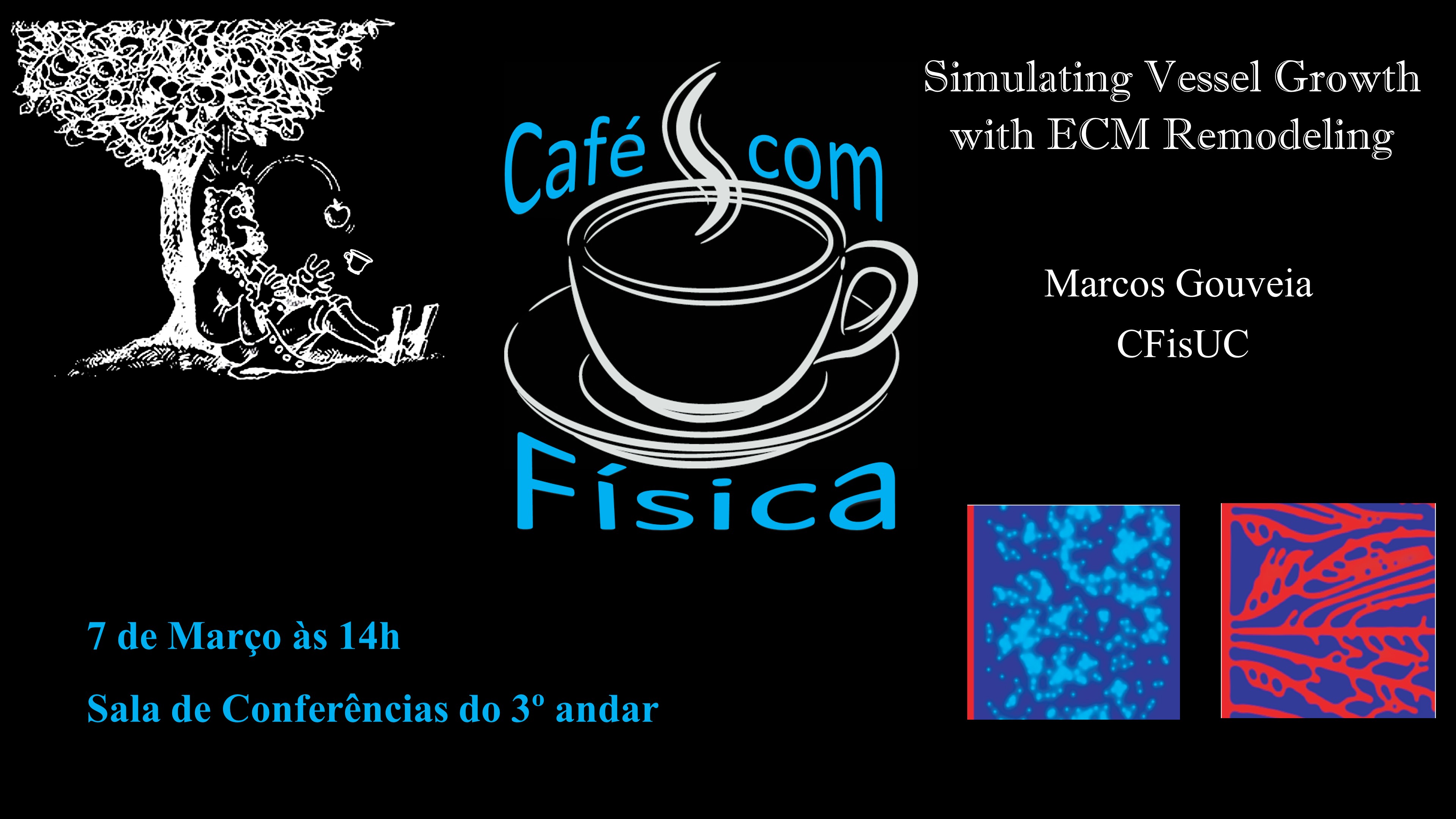Simulating Vessel Growth with ECM Remodeling
by
Sala de Conferências
Departamento de Física

Sprouting angiogenesis is a mechanism the body uses to create new capillaries that will deliver oxygen and nutrients to the cells that constitute the surrounding tissue. This process is characterized by the protrusion of new sprouts from a preexisting vessel, a consequence of endothelial cell migration and proliferation. What makes angiogenesis so complex is that it involves chemical signaling, mechanical forces between the cells and the extracellular matrix, and endothelial cell coordination. In this work we are interested in studying how the mechanical properties of the extracellular matrix influences endothelial cell's migratory behavior and how some cells are capable of changing those properties by degrading the collagen that forms the matrix. Using a continuous approach, we developed a phase field model from where we derive a set of partial differential equations that describe the dynamics of the vascular network as well as the reaction-diffusion processes that occur in parallel. One of the main advantages of this model is that it has a reduced number of parameters, whose value can be estimated based on experimental results. To solve the model we developed software capable of integrating the equations numerically and simulating the rule--based dynamics of endothelial cell activation. The results we obtained allow us to characterize how endothelial cell migration is influenced by the mechanical properties of the matrix, especially its rigidity. For substrates with low rigidity the cells tend to separate from the starting vessel and migrate alone. On the other hand, stiffer matrices allow for the elongation of sprouts to occur, resulting in new, well structured vessels. We also characterize the role matrix metalloproteinases have in successful endothelial cell migration.
Filipe Veloso e Pedro Costa
